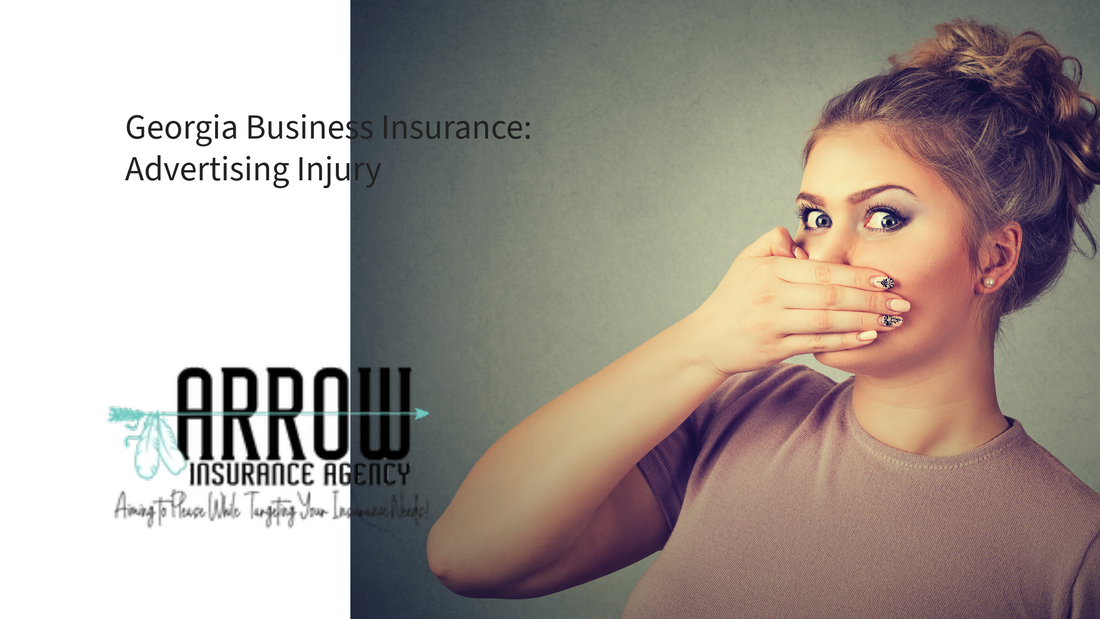|
We continue our examination of what makes for great comprehensive business insurance coverage. Today, we dive into the topic of advertising injury claims. Advertising injury is a type of liability coverage provided by business insurance policies. It refers to the harm or damage caused by certain advertising activities. While traditional liability coverage typically protects against bodily injury or property damage claims, advertising injury coverage focuses on offenses related to advertising and marketing. This coverage is important for businesses as it protects them from financial liabilities arising from claims such as infringement of copyright, misappropriation of advertising ideas, false arrest, invasion of privacy, or defamation in their advertising activities. Understanding what constitutes advertising injury and having the appropriate insurance coverage in place is crucial for businesses to safeguard their interests and mitigate potential financial risks. How Does Advertising Injury Affect Businesses in Georgia? In terms of liability coverage, businesses need to ensure they have appropriate insurance policies in place to protect themselves from potential advertising injury claims. General liability insurance policies typically include advertising injury coverage, which can help cover the costs of legal defense and potential settlements or judgments. The potential costs associated with advertising injury can be substantial. Businesses may face expenses such as legal fees, compensation for damages, and even punitive damages in some cases. These costs can quickly add up, putting a strain on a company's financial resources. Types of Advertising Injury It is important for businesses to understand the various types of advertising injury and ensure they have the proper insurance coverage in place to protect against potential claims. Let's take a look at some of the key types. Libel and SlanderLibel and slander are two important concepts to consider in relation to advertising injury in Georgia. Libel refers to the act of making false statements about a person or a business in a written or printed form, such as through advertisements or online posts. Slander, on the other hand, involves making false spoken statements that can harm a person or business's reputation. Both libel and slander can have significant impacts on businesses, leading to damage to their reputation, loss of customers, and potential legal consequences. For businesses, the costs associated with libel and slander can be substantial. Apart from the potential loss of customers, there may be legal fees involved in defending against libel and slander claims. If found guilty of libel or slander, businesses may also face hefty fines, damages, or even settlement costs. Moreover, the negative impact on the company's brand image and goodwill can be long-lasting, affecting the overall success of the business. In terms of legal considerations, there are key elements that need to be proven in libel and slander cases. These include demonstrating that a false statement was made, that the statement was published or spoken to a third party, the statement specifically referred to the plaintiff, and that the plaintiff suffered harm as a result. It is also important to note that there are certain defenses available, such as truth and privilege, which can be used to refute libel and slander claims. Invasion of Privacy Invasion refers to the unauthorized intrusion into an individual's personal life or affairs without their consent. Businesses can be held liable for invasion of privacy if they engage in certain actions that violate an individual's right to privacy. There are several types of invasion of privacy that businesses should be aware of. The first is intrusion upon seclusion, which involves intentionally invading an individual's private space or affairs without permission. In the context of business, this could include unauthorized surveillance or monitoring of employees or customers. Another type is public disclosure of private facts, which occurs when a business publicly shares private information about an individual that is not of legitimate public concern. This could include releasing sensitive employee or customer information without consent. Finally, false light invasion of privacy involves publicly portraying an individual in a false or misleading way. This could include using someone's image in advertising or marketing without their consent. If a business is found guilty of invasion of privacy, they may face various consequences and liabilities. These can include legal penalties, such as compensatory and punitive damages, as well as reputational damage. Copyright Infringement Copyright infringement is a serious offense that can have significant consequences for businesses. Advertising is a crucial aspect of any business's operations, and when it involves using protected terms or logos without permission, it can lead to legal complications. In the case of Gibraltar Coffee, the coffee corporation alleged that the use of the term "Gibraltar" in advertising materials created confusion among consumers and violated their trademark rights. Copyright infringement can result in hefty penalties, including compensation for damages, punitive damages, and legal fees. Moreover, businesses found guilty of copyright infringement may be required to cease using the infringing material and may also face an injunction preventing further use. By understanding the importance of obtaining proper permissions or licenses for the use of protected terms or logos, businesses can avoid costly legal disputes and protect their reputation in the marketplace. Misappropriation of Advertising Ideas Misappropriation of advertising ideas refers to the unauthorized use or misuse of another company's advertising concepts or strategies for commercial purposes. This practice is deemed unethical and can have significant legal implications for businesses involved. It involves the unauthorized copying or imitation of an advertising idea, which may include slogans, jingles, promotional campaigns, or unique concepts that have been developed and used by another business. When a company engages in misappropriation of advertising ideas, it can face serious consequences. Legal action may be taken by the business whose ideas were misappropriated, leading to litigation and potential financial penalties. In addition, the reputation and credibility of the company engaging in such practices may be tarnished, leading to a loss of trust and customers. Misappropriation of advertising ideas can occur in various ways. For example, a business may steal another company's advertising campaign or copy its slogans or jingles. Another common scenario is when a company hires an employee who brings along proprietary advertising concepts from a previous employer and uses them without permission. To protect themselves from potential legal issues and consequences, businesses in Georgia must ensure that their advertising practices are original and do not infringe upon the intellectual property rights of others. It is crucial to obtain the necessary permissions or licenses for using any copyrighted material and to create their own unique advertising ideas and strategies. Overall, misappropriation of advertising ideas is an unethical practice that can lead to legal disputes and financial repercussions for businesses. Liability Coverage for Advertising Injury in Georgia Georgia businesses need to be aware of the potential risks associated with advertising and ensure they have the appropriate insurance coverage to protect themselves against potential claims and legal liabilities. Arrow Insurance Agency, located in Loganville, Georgia, helps your Georgia business to set proper coverage in place to protect against claims of advertising injury as part of a comprehensive business insurance (a.k.a. commercial insurance) policy. Don't leave your business in a vulnerable state. Make certain you get proper coverage. Arrow will keep you on target!
0 Comments
Leave a Reply. |
Contact Us(770) 692-7500 Archives
June 2024
Categories
All
|
We are licensed in Alabama, Florida, Georgia, South Carolina
Navigation |
Connect With UsShare This Page |
Contact UsArrow Insurance Agency
3925 Harrison Rd Suite 200 Loganville, GA 30052 (770) 692-7500 Click Here to Email Us |
Location |
Website by InsuranceSplash



 RSS Feed
RSS Feed